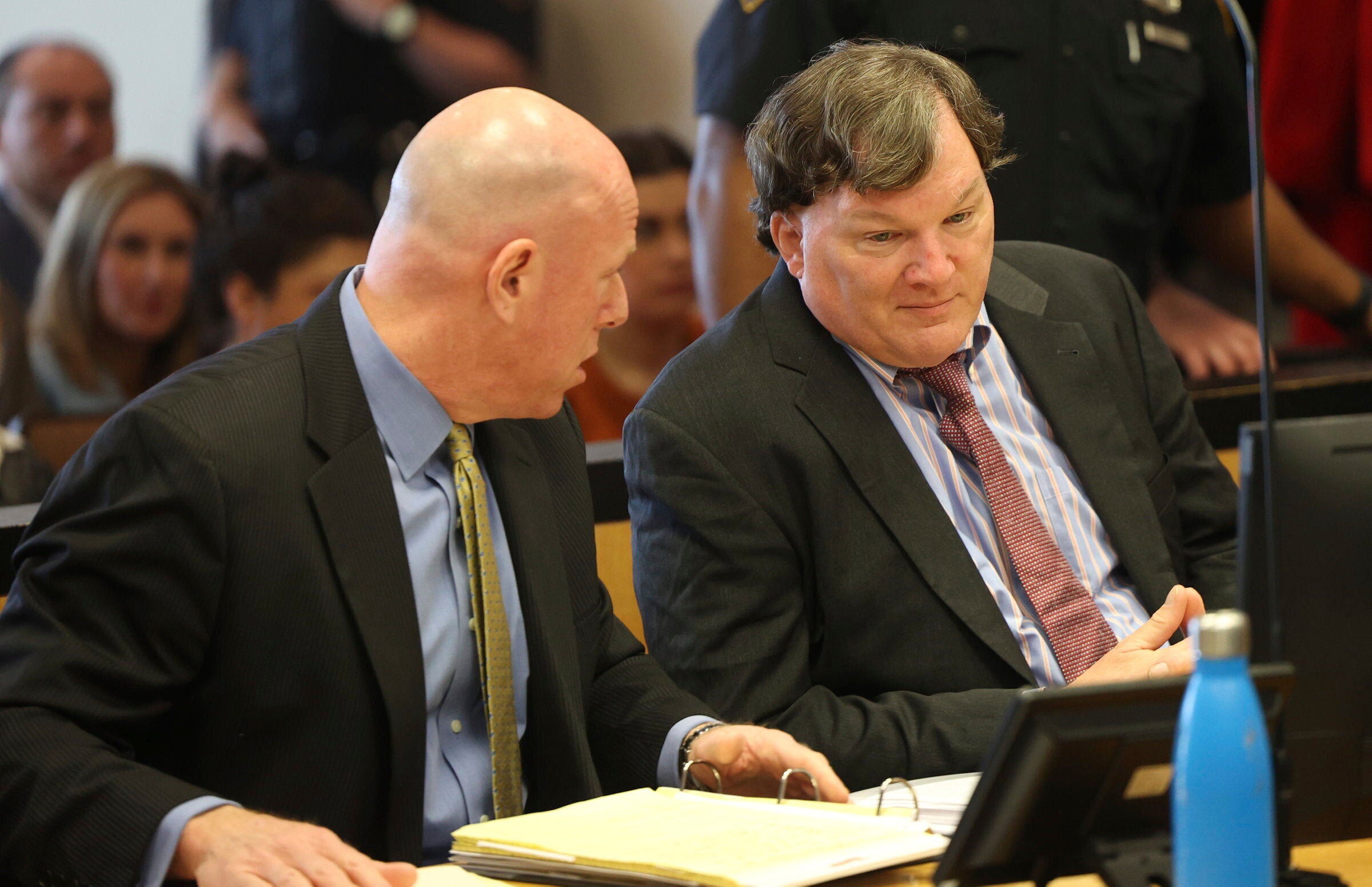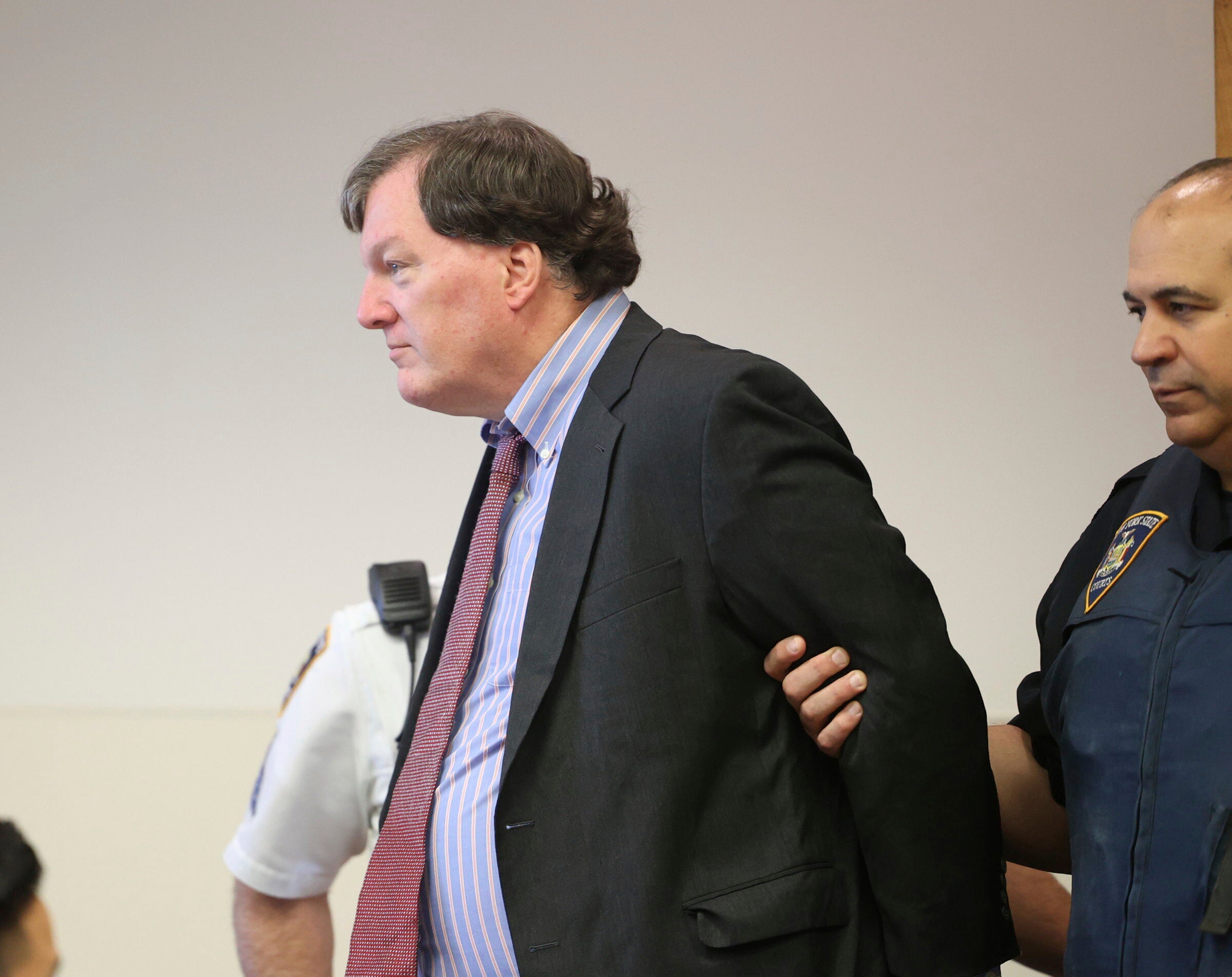Suspected Gilgo Beach serial killer Rex Heuermann and his estranged wife reached a divorce settlement this week as proceedings began to determine if DNA evidence should be admissible in the former architect’s upcoming murder trial.
Heuermann, now 61, was arrested in July 2023 outside his New York City office as part of an investigation police had been working on since 2010 into the deaths of at least 10 people — mostly female sex workers — whose remains were discovered along an isolated highway near Gilgo Beach on Long Island. He has been charged with the murders of seven women.
His wife, Asa Ellerup, who lived in the Massapequa Park home they shared with their children on Long Island, filed for divorce a short time after his arrest. She also appeared in court on Friday, along with the couple’s daughter and the family’s lawyer, Robert Macedonio.
“She has a difficult time throughout this whole process believing the husband that she was married to for 29 years now was capable of committing these horrific acts,” Macedonio told ABC7 following the news of the divorce settlement.
“It is even more concerning that her hair and her daughter's hair were found on some of these victims. So, this process is very important to getting closure for her and her family.”

The divorce settlement was filed in Suffolk County Supreme Court on Thursday night, but the details are not public.
On Friday, Heuermann was back in court, where attorneys argued over using DNA evidence at his trial. He was first charged with the murders of Melissa Barthelemy, Amber Lynn Costello, and Megan Waterman, whose bodies were found between 2009 and 2010.

While in custody, Heuermann was subsequently charged in the deaths of four other women: Valerie Mack in 2000, Jessica Taylor in 2003, Maureen Brainard-Barnes in 2007, and Sandra Costilla in 1993.
Heuermann’s attorneys argued in court on Friday that DNA tests conducted on hairs recovered from most of the seven victims in the case should be excluded from the trial, saying such analysis has never been accepted in a New York court of law.
But a genetics expert testified that the DNA techniques used to analyze the hairs are widely accepted in the scientific community.
Dr. Kelley Harris, a University of Washington professor of genome sciences, described the type of testing used, known as nuclear DNA or “whole genome sequencing,” as an “elegant and powerful method” for testing whether hair fragments pulled from a crime scene match those taken from suspects.

Suffolk County District Attorney Ray Tierney’s office, which is prosecuting the case, has argued that whole genome sequencing has been accepted in peer-reviewed scientific journals and by federal regulators, paleontologists, virologists, and medical communities.
In legal briefs, they say the findings by Astrea Forensics, the California-based lab that conducted the nuclear DNA analysis, were also independently corroborated by another lab’s mitochondrial DNA testing -- a methodology long accepted by New York courts.

No ruling was expected Friday from Judge Timothy Mazzei, as other experts are expected to testify in the coming days, the Associated Press reported.
Michael Brown, Heuermann’s attorney, also wants to break the case into multiple trials over concerns about the “cumulative effect” of the evidence presented by prosecutors. Prosecutors have opposed that request and Mazzei is expected to rule on it soon.
Heuermann has maintained his innocence and pleaded not guilty to all counts.
A trial date has not yet been set.







